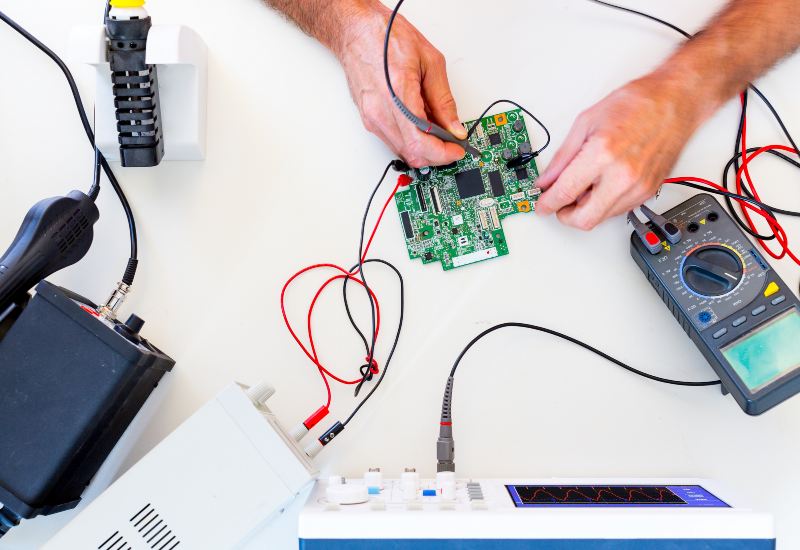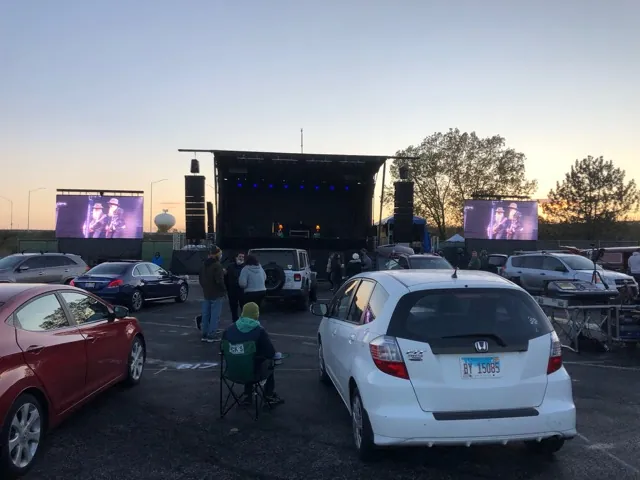Discover Exceptional Audio Visual Services for Your Future Occasion
Discover Exceptional Audio Visual Services for Your Future Occasion
Blog Article
Understanding the Basics of Event Production
The ins and outs of event manufacturing need an extensive understanding of several foundational elements, consisting of the establishment of clear purposes, precise budgeting, and critical location option. Each element plays a pivotal function in the seamless implementation of an event, affecting every little thing from audience involvement to logistical efficiency. The technological facets of manufacturing and the dynamics of team coordination are similarly necessary to attaining a natural end result. As we explore these crucial elements, one have to take into consideration just how they relate and influence the total success of an occasion. What techniques can be utilized to integrate these components properly?
Defining Event Purposes
Defining event purposes is a critical action in the event manufacturing procedure, working as the foundation upon which all preparation and implementation are developed. Clear goals offer direction, ensuring that all stakeholders understand the event's objective and wanted end results. These purposes ought to specify, quantifiable, achievable, relevant, and time-bound (SMART), which enables for efficient analysis of success post-event.
Identifying the target audience is necessary in forming the goals. Recognizing their demographics, expectations, and passions enables event organizers to customize content and experiences that resonate with participants. Additionally, straightening the goals with wider organizational goals fosters support from management and stakeholders, guaranteeing that the event contributes to the total objective.
It is essential to communicate these purposes clearly to all group participants involved in the planning procedure. By establishing well-defined goals, occasion manufacturers can produce a structured framework that overviews decision-making and source appropriation, inevitably leading to a successful event.
Budgeting for Success
Efficient budgeting is necessary for the successful manufacturing of any kind of occasion, as it provides a financial framework that supports all planning tasks. A well-structured budget plan permits event planners to allocate sources effectively, making certain that every element of the event is effectively funded while decreasing the threat of overspending.
To produce an efficient budget plan, begin by recognizing all prospective costs, such as place prices, wedding catering, amusement, devices services, and advertising and marketing. It is vital to categorize these expenditures into fixed and variable costs, which helps in understanding which elements are non-negotiable and which can be changed based on monetary constraints.
In addition, income resources should be determined early in the budgeting process. This consists of ticket sales, sponsorships, and merchandise sales. By estimating prospective income, organizers can align their costs as necessary, guaranteeing that the event remains economically viable.
Normal surveillance of the spending plan throughout the planning process is important. This enables adjustments to be made as required, keeping financial self-control. Inevitably, a reliable budget not only safeguards versus unanticipated costs however likewise boosts the overall quality and experience of the event, ensuring its success.
Venue Selection Approaches
Selecting the best location is a critical component of successful event production, as it establishes the phase for the total experience. The primary step in venue selection is to define the occasion's objectives and target market, which will certainly guide the choice of place and capability. Factors to consider such as accessibility, ambiance, and offered features need to straighten with the occasion's motif and objective.
Following, review the place's ability to suit your anticipated number of guests while making certain convenience and involvement. It is important to check out prospective locations in individual to examine their format, centers, and total allure. In addition, analyze logistical elements including auto parking accessibility, public transport access, and any kind of constraints that might affect the event.
Spending plan restrictions are likewise critical; guarantee that the venue fits within financial parameters while supplying needed services. Contract negotiations need to be come close to with diligence, seeking openness relating to additional costs, termination plans, and obligation coverage.
Finally, consider the place's credibility and previous efficiency for comparable events (Audio Visual Services). Engaging with previous clients can give useful insights into the venue's integrity and service high quality, inevitably aiding in making a notified choice

Technical Production Components
Technical production components function as the foundation of any type of occasion, making sure that all audio, aesthetic, and lighting parts function sympathetically to produce an immersive experience. These elements incorporate a variety of modern technologies and methods aimed at supplying material successfully and engagingly.
Stereo are essential, including microphones, speakers, and blending devices to ensure clear audio shipment. High-quality sound is important for keeping audience involvement, especially in bigger locations. Visual parts include projection systems, LED displays, and video clip feeds, which boost the visual story of the event and support the total style.
Lighting plays a crucial function in assisting and setting the state of mind audience focus. A properly designed lighting strategy incorporates numerous techniques, such as spotlights, ambient illumination, and color laundries, to develop dynamic atmospheres proper for different sectors of the event.
Furthermore, technological manufacturing aspects need meticulous planning and assimilation. This includes pre-event noise checks, video clip wedding rehearsals, and lighting tests to attend to potential obstacles prior to the event begins. Ultimately, a cohesive technical manufacturing technique not just elevates the event experience but additionally reflects the expertise and attention to detail that individuals anticipate.

Team Coordination and Duties
Successful event manufacturing rests on useful source seamless group sychronisation and plainly defined functions amongst all participants. For an event to run efficiently, each staff member need to recognize their responsibilities and just how they contribute to the general vision. This starts with developing an extensive organizational framework that marks roles such as event manager, logistics organizer, technological supervisor, and advertising and marketing professional. Each role carries details responsibilities that need to be implemented combined with each other.
Efficient communication is important in this collaborative atmosphere. Audio Visual Services. Regular conferences and updates make certain all group members are lined up and can adapt to any modifications or challenges that arise. Utilizing task monitoring read here devices can facilitate this communication, permitting real-time updates and task monitoring
In addition, cultivating a culture of teamwork is important. Urging cooperation amongst diverse ability not only boosts analytic but likewise promotes a favorable working ambience. When team participants feel valued and encouraged, their efficiency rises, eventually leading to an extra successful occasion.
Conclusion
Finally, a detailed understanding of occasion production incorporates defining clear purposes, establishing a robust spending plan, choosing an ideal venue, taking care of technical production components, and making sure reliable team control. Each component plays an essential function in the total success of an event. By thoroughly dealing with these principles, occasion planners can boost the attendee experience, enhance resources, and accomplish wanted results, thus adding to the occasion's general performance and effect within the intended target market.
The intricacies of occasion production require a thorough understanding of several fundamental elements, consisting of the establishment of clear goals, meticulous budgeting, and strategic location option.Defining occasion objectives is a critical step her comment is here in the event production process, offering as the foundation upon which all planning and implementation are constructed. By developing distinct objectives, event manufacturers can develop an organized framework that overviews decision-making and resource allocation, eventually leading to an effective occasion.
In verdict, a comprehensive understanding of event manufacturing encompasses specifying clear objectives, establishing a durable budget, selecting an ideal venue, handling technical manufacturing aspects, and making certain effective team sychronisation. By diligently resolving these fundamentals, event organizers can enhance the attendee experience, maximize sources, and achieve wanted outcomes, consequently adding to the event's overall effectiveness and effect within the intended target market.
Report this page